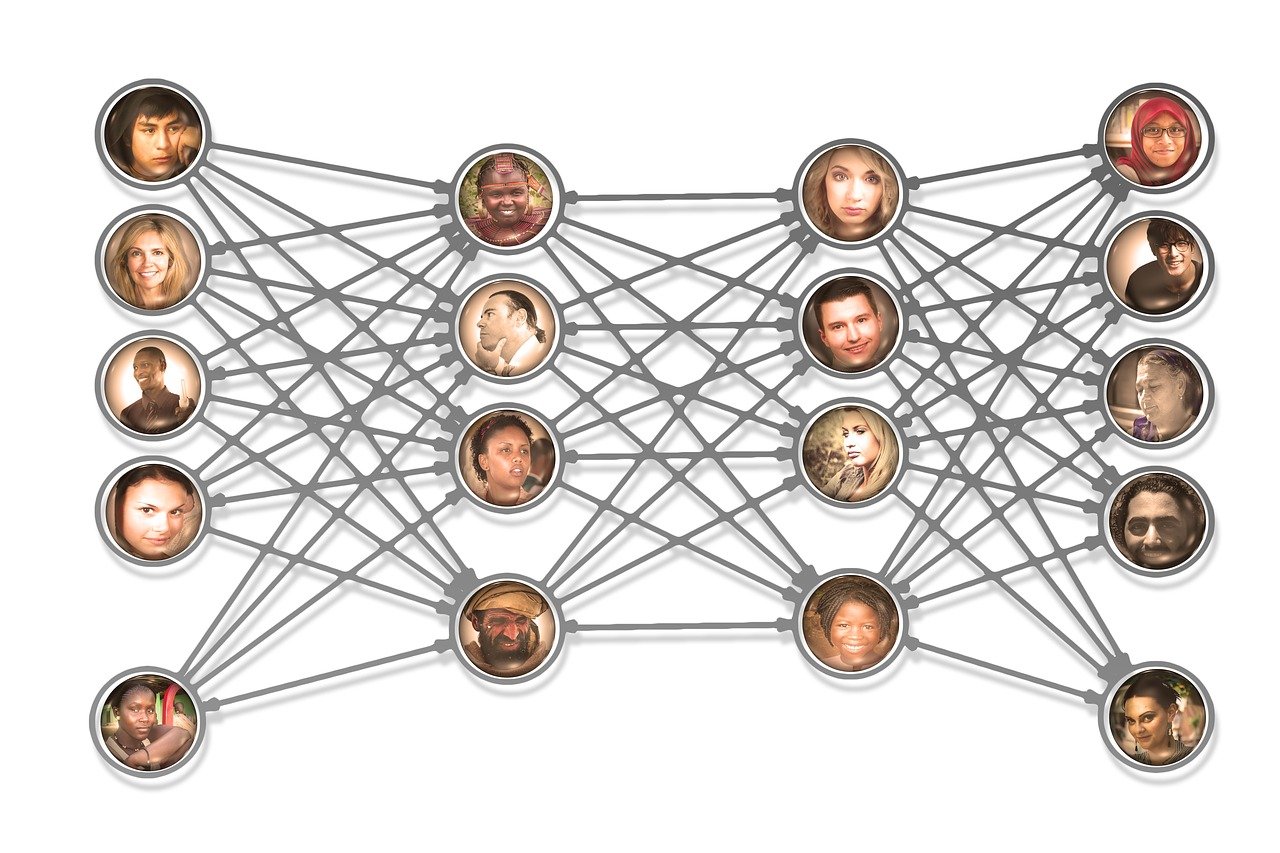The Future of Gaming: Predictions and Trends Shaping the Next Decade
The gaming industry has witnessed exponential growth over the past few decades, evolving into a cultural phenomenon that captivates millions worldwide. As technology continues to advance at an unprecedented pace, it is crucial to explore the future of gaming, highlighting key predictions and trends that are set to shape the next decade. From virtual reality to artificial intelligence, the gaming landscape is on the brink of a transformation that promises to revolutionize the way we play and interact with games.
The Rise of Virtual Reality and Augmented Reality
Virtual Reality (VR) and Augmented Reality (AR) have been buzzwords in the gaming industry for several years. As hardware becomes more affordable and technology advances, VR and AR are poised to become mainstream in the gaming world. These technologies offer immersive experiences, allowing players to step into the game world and interact with it in ways previously unimaginable.
VR headsets like the Oculus Quest 2 and PlayStation VR have already made significant strides, offering gamers a taste of what is possible. In the next decade, we can expect more refined and accessible VR devices, providing seamless integration with gaming consoles and PCs. Furthermore, advancements in VR technology will likely lead to more sophisticated and realistic gaming environments, enhancing the overall gaming experience.
Augmented Reality, on the other hand, overlays digital content onto the real world, creating a blended reality. Games like Pokémon Go have demonstrated the potential of AR, and as smartphones and AR glasses become more advanced, we can expect a surge in AR gaming experiences. This will not only change how we play games but also how we interact with our surroundings.

Cloud Gaming: Gaming Without Boundaries
Cloud gaming is set to revolutionize the gaming industry by removing the need for high-end hardware. By streaming games over the internet, players can access and play games on any device with a stable internet connection. Services like Google Stadia, Microsoft xCloud, and NVIDIA GeForce Now are already leading the charge in this area.
As internet infrastructure improves globally, cloud gaming will become more viable, allowing players to experience high-quality graphics and seamless gameplay without the need for expensive consoles or PCs. This trend will democratize gaming, making it more accessible to a wider audience.
The future of cloud gaming looks promising, with companies investing heavily in technology and infrastructure to enhance streaming quality and reduce latency. As cloud gaming becomes more mainstream, it will likely lead to new business models, such as subscription services, altering the traditional game purchasing paradigm.
The Integration of Artificial Intelligence
Artificial Intelligence (AI) is poised to play a significant role in the future of gaming. From enhancing non-player characters (NPCs) to creating more personalized gaming experiences, AI is set to change how games are developed and played.
AI-powered NPCs can adapt to player behavior, providing more dynamic and challenging gameplay. These NPCs can learn from player actions, offering a more realistic and engaging experience. Additionally, AI can be used to create procedurally generated content, ensuring that each gaming session is unique.
The potential of AI in gaming extends beyond in-game experiences. Game developers can use AI to analyze player data, offering insights into player preferences and behavior. This data can be used to tailor games to individual players, enhancing satisfaction and engagement. As AI technology continues to evolve, we can expect even more innovative applications in the gaming industry.

The Growth of Esports
Esports, or competitive gaming, has grown into a billion-dollar industry, attracting millions of viewers worldwide. With the increasing popularity of games like League of Legends, Dota 2, and Fortnite, esports is set to become even more mainstream in the coming decade.
The future of esports will be marked by professionalization and increased investment. Major brands and investors are already recognizing the potential of esports, leading to more sponsorship deals, higher prize pools, and improved infrastructure. As a result, esports will likely become a staple in the entertainment industry, rivaling traditional sports in terms of viewership and revenue.
Furthermore, the integration of virtual and augmented reality in esports could create new and exciting viewing experiences, further blurring the lines between gaming and traditional sports.
Blockchain and NFTs in Gaming
Blockchain technology and Non-Fungible Tokens (NFTs) are emerging trends that could significantly impact the gaming industry. Blockchain offers a decentralized and secure way to manage in-game assets, providing players with true ownership and the ability to trade items across different games and platforms.
NFTs, on the other hand, have the potential to revolutionize in-game economies. By tokenizing in-game assets, developers can create unique and scarce items that hold real-world value. This opens up new revenue streams for both developers and players, as items can be bought, sold, and traded on blockchain marketplaces.

As blockchain technology matures, we can expect more games to adopt these systems, leading to new gameplay experiences and economic models.
Takeaways
The future of gaming is bright, with numerous trends and technologies set to shape the industry over the next decade. From the rise of VR and AR to the integration of AI and blockchain, gaming is on the cusp of a transformation that will redefine how we play, interact, and experience games. As these technologies continue to evolve, the gaming landscape will become more immersive, accessible, and diverse, offering endless possibilities for both players and developers.
As we look forward to the next decade, it is essential for developers, players, and industry stakeholders to embrace these changes and innovations, ensuring that the gaming industry continues to thrive and captivate audiences worldwide. Whether you are a casual gamer or an industry professional, the future of gaming promises to be an exciting journey filled with new and groundbreaking experiences.
Social Gaming and Community Building
As gaming becomes more interconnected, social gaming is set to play a crucial role in the industry’s future. The rise of multiplayer online games has already demonstrated the power of community in gaming, with platforms like Discord and Twitch fostering vibrant ecosystems where players can connect, compete, and collaborate.
The next decade will likely see an even greater emphasis on social features, with games integrating more robust communication tools and community-driven content. This shift will be driven by the desire to create more engaging and interactive experiences that prioritize player interaction and collaboration.

Games will increasingly focus on cooperative gameplay, where players work together to achieve common goals. This trend will not only enhance the social aspect of gaming but also create opportunities for forming lasting friendships and communities. As technology advances, we can expect more innovative ways to connect players, such as through social gaming platforms and interactive experiences.
Game Streaming and Content Creation
Game streaming and content creation have become integral parts of the gaming ecosystem, allowing players to share their experiences and engage with audiences worldwide. Platforms like Twitch and YouTube Gaming have created a new breed of gaming celebrities, turning content creation into a viable career path for many.
In the next decade, we can expect further growth in game streaming, driven by advances in technology and increased accessibility. High-speed internet and improved streaming tools will enable more players to create and share content, leading to a more diverse range of gaming experiences and perspectives.
The rise of game streaming will also influence game development, with developers increasingly designing games that are not only fun to play but also engaging to watch. This trend will create new opportunities for collaboration between developers and content creators, resulting in more community-driven content and experiences.
Inclusivity and Diversity in Gaming
As the gaming industry continues to grow, there is an increasing emphasis on inclusivity and diversity. The next decade will likely see more games that cater to a wider range of players, offering diverse characters, stories, and experiences that reflect the world’s rich cultural tapestry.
Game developers are recognizing the importance of representation, striving to create games that resonate with players from all backgrounds. This shift is not only about inclusivity but also about creating more authentic and engaging narratives that offer players a deeper connection to the game world.

Moreover, as gaming becomes more inclusive, we can expect a more diverse range of perspectives and voices in the industry, leading to more innovative and compelling games. This trend will be driven by both player demand and industry recognition of the value of diversity in creating memorable gaming experiences.
Environmental Impact and Sustainability in Gaming
As the gaming industry grows, so does its environmental impact. From the production of gaming hardware to the energy consumption of data centers, sustainability is becoming a critical concern for the industry.
In the coming decade, we can expect a greater focus on sustainability, with companies striving to reduce their carbon footprint and adopt more eco-friendly practices. This might include the development of energy-efficient hardware, the use of sustainable materials, and the implementation of carbon offset programs.
Additionally, game developers may explore themes of sustainability and environmentalism within their games, raising awareness of these critical issues among players. By promoting sustainability, the gaming industry can play a significant role in addressing environmental challenges and inspiring positive change.
Takeaways
The future of gaming promises to be an exciting journey, filled with technological advancements, innovative experiences, and new opportunities for players and developers alike. As we look forward to the next decade, it is essential for the industry to embrace these changes, fostering a gaming landscape that is immersive, inclusive, and sustainable.
By leveraging the power of technology, creativity, and community, the gaming industry can continue to captivate audiences worldwide, offering experiences that entertain, inspire, and connect players in ways we have yet to imagine. The future of gaming is not just about the games themselves but about the people who play them and the communities they build, making it an exciting and dynamic space to watch in the years to come.
![“Behind the Scenes: An Exclusive Look at the Making of [Upcoming Highly Anticipated Game]”](https://brasil-jogo.com/wp-content/uploads/2025/11/behind-the-scenes-an-exclusive-look-at-the-making-of-upcoming-highly-anticipated-game-9JXK49-450x338.jpg)
















